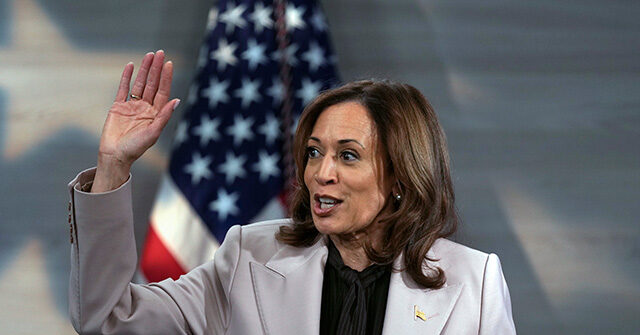On a recent episode of CNN’s “OutFront,” Rep. Maxwell Frost (D-FL) addressed the ongoing campaign strategies employed by former President Donald Trump pertaining to immigration policies and gender transition procedures related to Vice President Kamala Harris. Frost condemned the Trump campaign’s use of ads that highlight Harris’s support for taxpayer-funded gender transition surgeries for individuals detained in immigration facilities. He characterized these advertisements as employing “bigoted ads and language and strategy.” Frost argued that such tactics are primarily aimed at demonizing transgender individuals, particularly trans youth, and claimed that they are attempting to fabricate controversy around a topic that is not a significant point of discussion among voters.
Host Erin Burnett introduced the topic by referencing a report from CNN’s KFile regarding Harris’s stance on gender-affirming surgeries for detainees. She noted that the Trump campaign had recently released an ad focusing on this issue and scrutinized Harris’s support, leveraging critiques from popular media figures, including Charlamagne tha God, who has been an advocate for Harris in the past. Burnett inquired about the potential repercussions this might have for Harris in her campaign, seeking Frost’s perspective on whether this created a substantial threat for the Vice President’s candidacy.
Frost responded by downplaying the impact of these attacks on Harris, emphasizing that they are part of a broader strategy by Republicans to divert attention from more pressing issues. He reflected on his experiences canvassing, stating that when he speaks with constituents, their primary concerns revolve around practical matters like housing costs, economic stability, and gun violence, rather than the narratives being pushed by Trump and his campaign. He suggested that the Trump campaign’s strategy is merely a distraction intended to create fear and division among voters by leveraging bigotry.
In his analysis, Frost expressed a strong belief that the use of inflammatory and hostile rhetoric towards marginalized groups, particularly the transgender community, is a tactic that has increasingly characterized Republican campaigns since Trump’s rise to political prominence. He underscored the problematic nature of targeting vulnerable populations to galvanize political support, conveying that such tactics are not only harmful but also indicative of a lack of genuine engagement with the electorate’s most pressing concerns. Frost emphasized that voters are increasingly aware of the real challenges they face and are unlikely to be swayed by attempts to cultivate outrage over divisive social issues.
The discussion thus highlighted a disconnect between political messaging from certain factions of the Republican party, which Frost characterized as “stirring something out of nothing”, and the genuine interests and anxieties of the constituents voters represent. He posited that there is little evidence to suggest that these types of attacks effectively resonate with voters or alter public opinion in a meaningful way. Frost’s assertion reflects a growing frustration among progressive voices regarding the reliance on fear-based tactics rather than addressing substantive policy matters that affect everyday Americans.
In closing, Frost reiterated the importance of focusing political narratives on issues that truly matter to the electorate rather than getting caught up in manufactured controversies. He underscored the need for a discourse centered around real-world challenges and finding solutions, rather than demonizing marginalized communities for political gain. This raises broader questions about the ethical implications of political advertising and the social responsibility of campaigns to engage with the electorate in a respectful and constructive manner.

